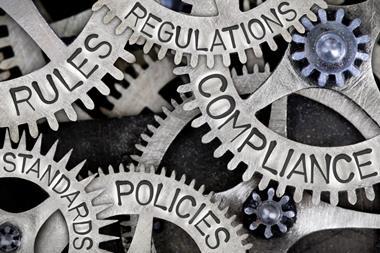Despite the many economic resiliency measures internal audit functions are engaged in, they are often an overlooked key asset in supporting organisations to navigate economic uncertainty. Here’s how risk managers can work with audit teams to better plan for financial shocks.
As businesses battle against economic turbulence, driven by stubbornly high inflation and an interest rate rise shock, the Chartered Institute of Internal Auditors is urging risk managers to work alongside their internal audit functions to build resilience against a possible recession.
A new report called: “Adapting to Economic Uncertainty: Internal Audit’s Journey”, provides guidance to risk managers, internal audit and boards on navigating the multitude of risks associated with the economic downturn.

The report examines lessons learned from previous economic shocks, the current response to economic uncertainty, and how internal audit can support the path to recovery.
Risk management emerged as the most common business function for internal audit collaboration, with 81% of organisations recognising the value of cross-functional partnerships.
The research found that internal auditors are most engaged in supporting risk management and framework assessment (73%), auditing cost savings measures (58%), and supply chain risk assessment (49%).
Other key measures internal auditors are engaged in include auditing pricing strategies, budgeting and forecasting reviews, contingency planning evaluation, financial stress testing and economic scenario planning.
What does it mean for risk managers?
The report focuses on a major risk area that must be on every risk manager’s radar.
It is critical that risk teams understand the impact that economic uncertainty can have on businesses, particularly when it comes to capital, liquidity and cashflow risk.
The Chartered Institute of Internal Auditors is calling for much closer collaboration between internal audit in the third line and risk management in the second line of defence.
It says that when risk audit and business continuity teams work closely together it will strengthen the organisation’s overall resilience.
In particular, the CIAA says that audit teams can help strengthen economic scenario planning to prepare the organisation for future shocks.
Auditing costs, identifying efficiencies, and evaluating pricing strategies in relation to inflation changes can help risk managers to mitigate financial risks and promote financial stability.
“Having an open line of communication [means that] audit findings can enable quick and informed decision-making by the organisation.”
Likewise, scrutinising any major projects and investments ensures their feasibility, alignment with financial objectives, and effective resource allocation while mitigating associated risks.
Audit teams can also provide proactive assurance on the organisation’s overall risk assessment processes and scenario planning to analyse whether they are in line with the current economic climate.
This allows risk managers to better evaluate the potential impact of risks associated with economic uncertainty on the organisation’s objectives, operations, and financial liquidity.
The study said: “Working and collaborating with risk management in the second line can help internal audit gain better insights into the risk landscape associated with economic uncertainty.
“Establishing and cultivating a strong relationship with the Audit Committee and its Chair can also enhance the credibility and influence of the internal audit function.
“Having an open line of communication [means that] audit findings relating to the emerging risks associated with economic uncertainty can enable quick and informed decision-making by the organisation.”
What next?
Despite the many economic resiliency measures internal audit functions are engaged in, they are often an overlooked key asset in supporting organisations to navigate economic uncertainty.
The report calls on risk managers and boards to better harness this asset by working with their internal auditors to implement robust assurance measures and foster a culture of resilience during times of economic uncertainty.
“Greater collaboration can help ensure that the organisation is resilient enough to weather the economic storm”
Implementing economic scenario planning, financial stress testing and financial and economic simulations can ensure the response to the ongoing economic challenges is proportionate, relevant, and impactful.
Anne Kiem OBE, Chief Executive of the Chartered Institute of Internal Auditors said: “Working closely together will ensure they can diligently and effectively identify, manage, and mitigate the long list of risks exacerbated by economic uncertainty.
“Greater collaboration can help ensure that the organisation is resilient enough to weather the economic storm and support greater preparedness for unforeseen economic shocks in the future.”




















No comments yet